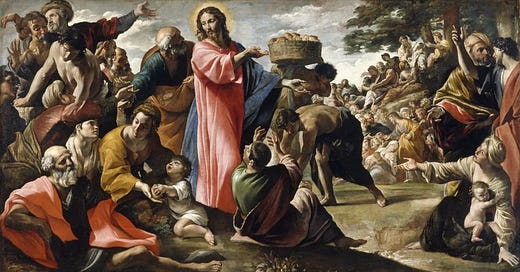Pope Francis has coined a new phrase, describing modern society as a ‘throwaway culture’. He has decribed this culture as ‘everything is disposable, even persons’. ‘Human beings are themselves considered consumer goods to be used and then discarded. We have created a ‘throwaway culture’ which is now spreading.’ ‘It is no longer simply about exploitation and oppression, but something new.’
He has described the modern day economy as an ‘economy of exclusion’. And a pivotal part of this economy is the concept of the ‘throwaway culture’, which is an attitude and a reality that goes beyond mere exclusion. The Pope notes that this culture and economy creates an environmental impact of unnecessary waste and a social and human impact of reducing humans to mere consumers—the evil idea that living is shopping, if someone cannot produce or purchase then they are worthless!
This throwaway attitude results in people on the margins of society being treated as disposable and discarded. The marginalized, including the poor, the elderly, the disabled, and the unborn, are often viewed as burdens rather than valued members of the community.
This mindset perpetuates inequality and erodes the dignity of individuals, fostering a society where people are judged solely on their productivity and consumption. Pope Francis calls for a shift in perspective, urging us to recognize the intrinsic worth of every person and to build a culture of care and inclusion that honors the dignity of all.
In this week’s Gospel John 6: 1-15, Jesus takes the five barley loaves and two fish (see yesterday’s post) gives thanks to ‘The Father’ for his generosity and after the people have eaten their fill, he says to his disciples ‘Gather up the leftover fragments, that nothing may be lost’. I believe it is symbolic that they collected 12 baskets with fragments. To me it represents the 12 tribes, signifying that no-one is lost.
This gesture embodies a message of inclusion, countering the 'throwaway culture' by emphasizing that every person, every fragment, has value and should be cherished. It challenges us to care for all, particularly those who are often overlooked or discarded, and to create a community where everyone's dignity is honored and no one is considered expendable.
The challenge for us is to internalize this attitude of valuing every person and resource and to adapt our behavior accordingly. This means moving beyond merely acknowledging the worth of each individual to actively incorporating this recognition into our daily actions and decisions. It involves fostering a mindset of stewardship, where we not only care for material resources but also nurture the potential and dignity of those around us.
This shift starts within our own family and community, where we can model and cultivate a culture of care and inclusion. In our homes, we teach children the importance of empathy and respect for all people, regardless of their circumstances. In our communities, we can support initiatives that provide for those in need and advocate for policies that ensure no one is left behind.
By practicing mindful consumption, waste reduction and re-purposing we can also contribute to environmental sustainability, aligning our actions with the principle that nothing should be discarded carelessly.
As we embody these values in our everyday lives, we become agents of change, inspiring others to do the same. This collective effort can transform our world into a place where everyone's dignity is honored and no one is considered expendable.





Deacon, what a powerful message !
Your insights today go beyond interpreting the Gospel. It’s a very strong manifesto for a change in human mindset, a total Metanoia.
This is what was talked about at the World Community for Christian Meditation (WCCM) -Canada national conference in early July with Kaveh Guilanpour as the keynote speaker.
Humans are not physiologically and psychologically equipped to deal with the huge challenge of climate change and biodiversity deterioration, which has been caused by humans’ descent into what the pope describe as the “disposable culture”.
It is not too late to reverse the trend, but there has to be a recognition and a transformation of how we perceive, and value humans and how we define human worth. Contemplative practises, like meditation, can help us reconnect with our true nature.
Some will call this true nature God some will call it Love, some will call it universal intelligence and some will call it nothing. But if we teach a whole generation how to meditate, the following generation will not live as a disposable culture.